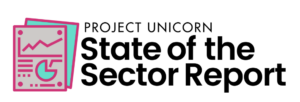An Invaluable Addition to the DLN Smart Series “Data Backpacks”: APIP’s PNP

By Peter Hofman, Vice President of Public Policy and External Relations at Measured Progress
You might be scratching your head: APIP’s PNP? APIP stands for Accessible Portable Item Profile, which provides the technical framework to deliver digital content tailored to the specific accessibility needs of each student. PNP stands for Profile of Needs and Preferences, which captures those needs. You’re probably not familiar with APIP. Most people will never dig deeply into its technical guts, but they should know what it means for students: it can dramatically improve the educational experiences of so many students we are now short-changing – or worse.
“Data Backpacks: Portable Records & Learner Profiles,” a timely paper that’s right on the mark, poses a critical question in the conclusion: “What kind of data are we talking about?” APIP’s PNP represents an essential addition to the Learner Profile. Here’s why.
About the fit: Throughout, the paper properly cites the importance of assessment. Although it mentions students with disabilities and even IEP’s, we think it misses a key ingredient: The necessity of students to fully access digital content to ensure the results accurately reflect what they know and can do. More students than you can imagine can’t do that: they’re repeatedly frustrated and assessments don’t provide useful insights so educators can help them succeed. APIP is that ingredient, which is why its PNP belongs in the Learner Profile.
About APIP: In 2008, a group of eight states (and four observing states) collaborated under a federal grant to define their accessibility requirements and develop a breakthrough accessibility and interoperability technical framework (the APIP standard) designed to enable the delivery of digital test content tailored to each student’s individual accessibility needs. First released in December 2010, APIP is now housed at the non-profit IMS Global Learning Consortium (IMS) as an open-source, open-license standard, with active participation by both states and leading companies. Individual states and the RTTT assessment consortia are adopting APIP and we’re working to insert language in federal education legislation that properly addresses accessibility and interoperability.
In short, the specifications within APIP cover three critical areas:
- Creating “extensions” to Universally Designed digital content that provide a wide range of accessibility supports for that content
- Documenting the specific accessibility needs of each student (the PNP); and
- Making the content with embedded supports and the student needs profiles interoperable—meaning all the information needed to tailor delivery to each student can be efficiently and easily exchanged from one system to another, an essential capability in this era of tight budgets, Common Core State Standards, and multi-state consortia sharing assessment resources.
What most people don’t realize is that many students’ accessibility needs don’t qualify them for coverage under IDEA. These students just fall through the cracks! If teachers have no idea about their accessibility needs, they will lose precious time in accurately tailoring instruction and supports, something the Data Backpacks are designed to avoid. But wherever digital content conforms with APIP, all students will have the supports and access they need for learning, instruction, and assessment!
APIP isn’t just about theory: Nimble Assessment Systems, a small company outside Boston (which Measured Progress acquired in 2010), developed a computer-based system (NimbleTools®) capable of delivering digital test content with up to 18 accessibility supports.
The company field-tested the system in New England and Florida. In the 2007 Florida pilot, student results increased by half a standard deviation over their performance with accommodations provided by then existing technologies. Students also overwhelmingly (79 percent) stated a desire to use NimbleTools instead of other technologies.
Field tests in New England echoed these results and also overwhelmingly indicated that teachers thought the test results more accurately reflected students’ knowledge and skills. Don’t all students deserve the opportunity to fully access digital content that can help them succeed? None should fall through what we call “the assessment gap,” because the harm done is real—and for highly mobile students, such as children in military families, the consequences can be devastating.
APIP is founded upon well-established industry specifications. The APIP Working Group at IMS is diligently striving to develop certification and conformance requirements by early 2013. Multi-state research has been ongoing since 2010 to develop systems and resources that help teachers accurately identify students’ accessibility needs and to create item extensions for particularly challenging content. And technology advances are steadily making conformance with APIP more affordable.
But students need accessible digital content throughout the year: This is why we think APIP’s PNPs belong in Leaner Profiles and we’re working with interested parties to promote APIP adoption and use far and wide. Follow this link to learn more about APIP.







0 Comments
Leave a Comment
Your email address will not be published. All fields are required.